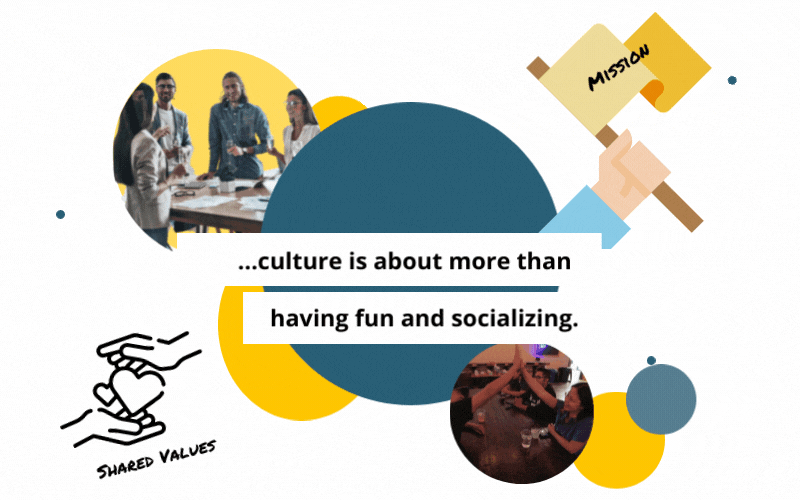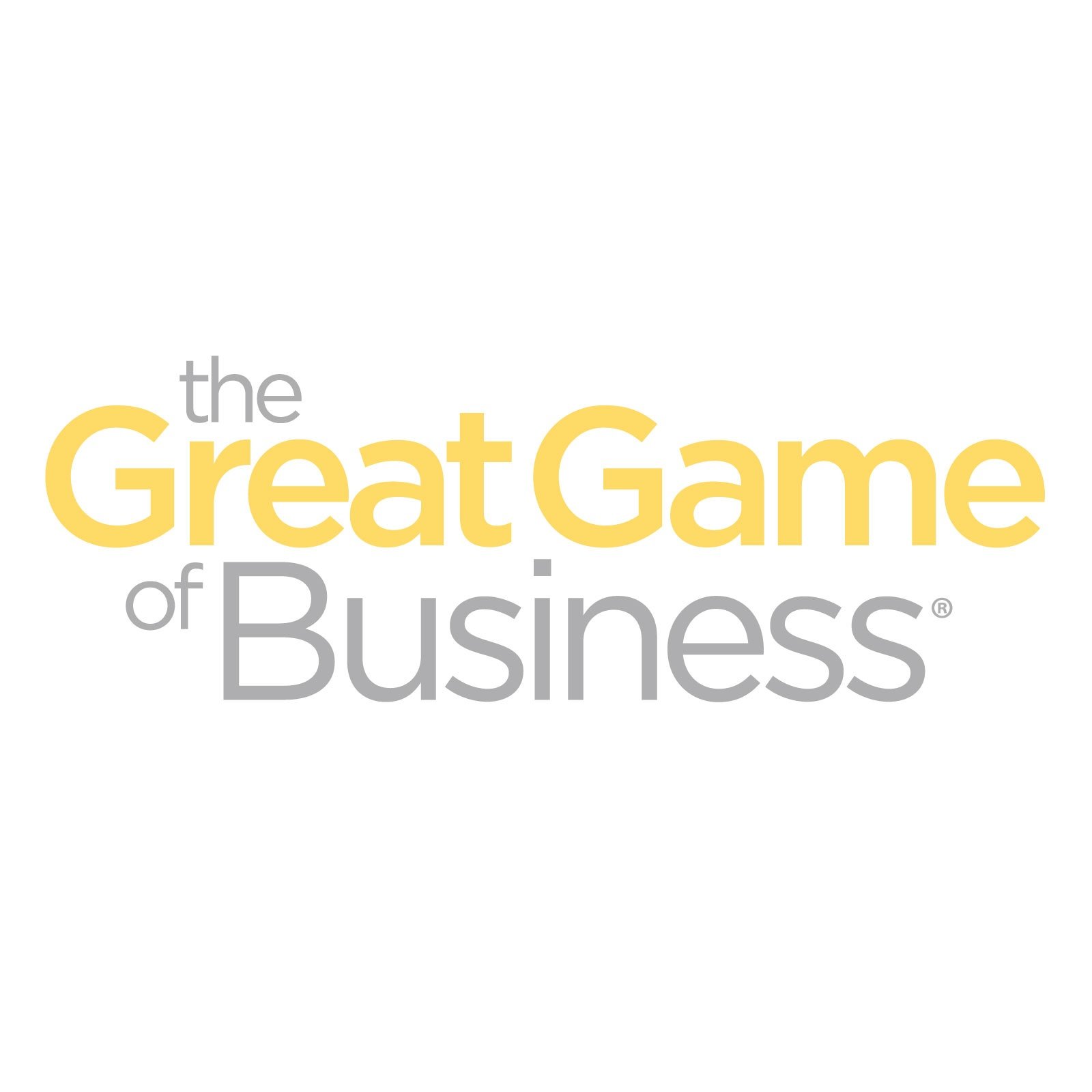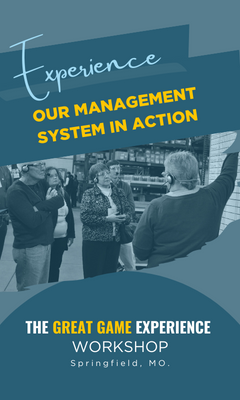.png?width=790&name=Blog%20Header%20(3).png)
Like so many workers leaving their positions during The Great Resignation, I wanted it all.
Higher pay, remote work, and a flexible schedule were options my former position in a non-profit couldn't offer, so I accepted a new job I knew had these benefits.
But here's the plot twist: After six months in my new role, I'm on the move again. As it turns out, I value a company's culture just as much as I value flexibility. The non-profits I left (after five years) offered an incredible culture that my new job lacked.
<< Transform your company's culture with a business coach. >>
The culture at my former job gave me a strong sense of belonging and wellbeing, and I trusted the leadership team. While working at my new job, I never felt like I fit into the culture. I often felt anxious and stressed, and sometimes wondered if leadership had my best interests at heart.
I had to ask myself, what was so different about the non-profit culture?
Working toward a humanitarian mission helped—the coworkers and leadership were very compassionate and mission-driven. But there was another common thread—both agencies adopted a business model called The Great Game of Business®—and its guiding principles helped them create a culture I greatly missed after leaving.
Why Job Satisfaction Matters in 2022
My experience helped me realize that culture is a deal-breaker for me when it comes to job satisfaction.
But why does job satisfaction matter? Because companies are engaged in a "war for talent," and if they want to win, they'll have to listen to workers like me.
And workers like me aren't happy.
According to a recent job satisfaction survey conducted by Business.com, "Only half of workers are satisfied with their current jobs. Another quarter are neutral, and 26 percent are dissatisfied."
.gif?width=1200&name=Job%20Satisfaction%20Stat%20(1).gif)
And many of us are on the move. The same survey goes on to say: "More than 60 percent of those currently employed are seeking new jobs or will start searching within the next six months."
That's the bad news for employers because, in the current job market, employees have all the leverage—if we're not happy, there are plenty of other options.
But here's the good news: Because we have leverage now, we're speaking loudly about what makes us happy—and all employers have to do is listen.
The Cultural Elements I Missed Most
Since culture is a deal-breaker for me now, I spent a lot of time reflecting on exactly what I loved about the cultures I thrived in. I narrowed them down to four elements—collaboration, openness, ownership, and fun.
Collaboration
At the new company, there wasn't a sense of collaboration on problems outside of our own department. It was like each department was working toward painting their own small picture of success. But we weren't painting one big picture as a company.
I often felt alone with my problems. Maybe I'd reach out to a couple of team members for help, but the problem rarely made it out of my own department.
I remembered an experience I had while working as the Volunteer Coordinator at one of the non-profits—a domestic violence shelter. We were experiencing a severe volunteer shortage due to the COVID-19 pandemic. My stomach sank as I checked my email and voicemail each day, finding fewer and fewer inquiries about volunteering.
I felt the weight of the problem on my shoulders. But I felt a wave of relief when I remembered our team's system for solving problems.
Because this non-profit played The Great Game of Business®, I knew that every Wednesday, we'd have our weekly Huddle—a 30-minute meeting with everyone in the organization. During this meeting, we'd review our scorecard–a list of key financial and service-related numbers we'd identified as critical to our success.
We'd review the numbers and then open the table to discuss any problems potentially blocking us from meeting our goals.
Within two weeks of voicing my concern about the volunteer shortage during Huddle, our entire team was mobilized. A plan was created to systematically solve the problem through a MiniGame™—a short-term, engaging activity designed to pursue an opportunity or correct a weakness within the company.
Our team created a MiniGame™ every quarter during the year—and this created a strong culture of collaboration across departments on an ongoing basis. This collaboration meant none of us ever had to feel like we had to solve a problem alone.
Openness
At the new company, I was never quite sure how we were doing financially. The general manager would report some details during a monthly all-staff meeting, but, as an entry-level staffer, I was mostly in the dark.
This uncertainty created feelings of disconnection and sometimes fear—can they afford to keep me as an employee? Can they afford to hire someone to share my workload? If there was a major problem, would I find out about it right away or be blindsided?
Both non-profits I worked for were committed to opening their books. We started each year by setting financial and service-related goals—called our Critical Numbers—and every team member in the agency was involved in this process.
Each week at our Huddle, we'd review the numbers—so each team member was in the know about exactly where we stood financially. This clarity always made me feel more secure, even when the numbers weren't good. Our weekly and monthly "forecasting"—looking ahead and communicating interdepartmentally to predict expenses, meant that we were ready for potential challenges.
What struck me most were the core values that our leadership team represented through their practice of open-book management: trust, honesty, and transparency.
By opening the books, they were saying to each employee—we trust you. We need you to know these details so we can all work together to carry out our mission. This fostered my trust in leadership.
Line-of-Sight
Because I wasn't aware of any financial goals at the new company, I also wasn't aware of how my work could contribute to meeting them or how the goals benefited me as an individual employee.
At the non-profit agencies, I was not only given financial details but I was also taught by leadership how to interpret and understand the numbers.
Leadership took the time to provide financial literacy training to all employees. This training was meant to empower us to take ownership within our roles and to help us set intelligent, workable goals for the agency.
This meant I didn't just know our agency's goals—I helped create them, and so I felt responsible for my part in meeting them each year.
A bonus program was also a part of my work at the two non-profit agencies—if we hit our Critical Number™ goals at the end of the year, each one of us received a bonus, and we all celebrated our win together.
This is what The Great Game of Business refers to as giving employees A Stake in the Outcome®—and it helped me feel like my hard work was being recognized and rewarded.
Fun
Don't get me wrong; we had fun at my new job. There were monthly group lunches and holiday parties.
But in between those events, the day-to-day work environment wasn't too exciting.
At both non-profits, even the weekly all-staff meetings (called "Huddles") were fun.
Each year as a part of The Great Game of Business®, our team decided on a theme for our Game. We designed our scoreboard around the theme, developed catchphrases around it, and used it to color all our celebrations and activities throughout the year. The theme could be anything from pop culture to movies or music.
.jpg?width=712&name=Malco%20Team%20(1).jpg)
One year, our theme was The Wizard of Oz, and at weekly Huddles, our Finance Director would throw Ding Dongs at staff members who received praise or recognition (Because ding dong, the witch is dead?) We'd laugh as she'd chuck them at us, trying to catch or duck and dodge them.
Another year we chose "Lego Movie" as our theme, and we built our scoreboard entirely out of legos. We'd often sing "Everything is Awesome" when something great happened.
These fun moments happened during work itself, not just during scheduled parties. Joy and playfulness were a part of day-to-day culture.
What I Learned About Culture
This biggest takeaway from my experience moving from one culture to another—is that culture is less about planned parties and more about shared values.
Does it really matter if your break room has beer on tap if your employees feel disconnected on a daily basis?

The culture of openness and system for collaboration at the non-profits I worked for meant more to me than any social event or "perk" ever could. It made my work life better on a day-to-day basis.
As a worker on the move, I still want it all. But that means both flexibility and a great culture.
Employers will need to offer this to get and keep employees during the war from talent in 2022.
And those who adopt business models like The Great Game of Business® to help create an outstanding culture will have the advantage.
.png)


.png?width=790&name=See%20if%20a%20business%20coach%20is%20right%20for%20you%20(1).png)





.png)




-5.png)

